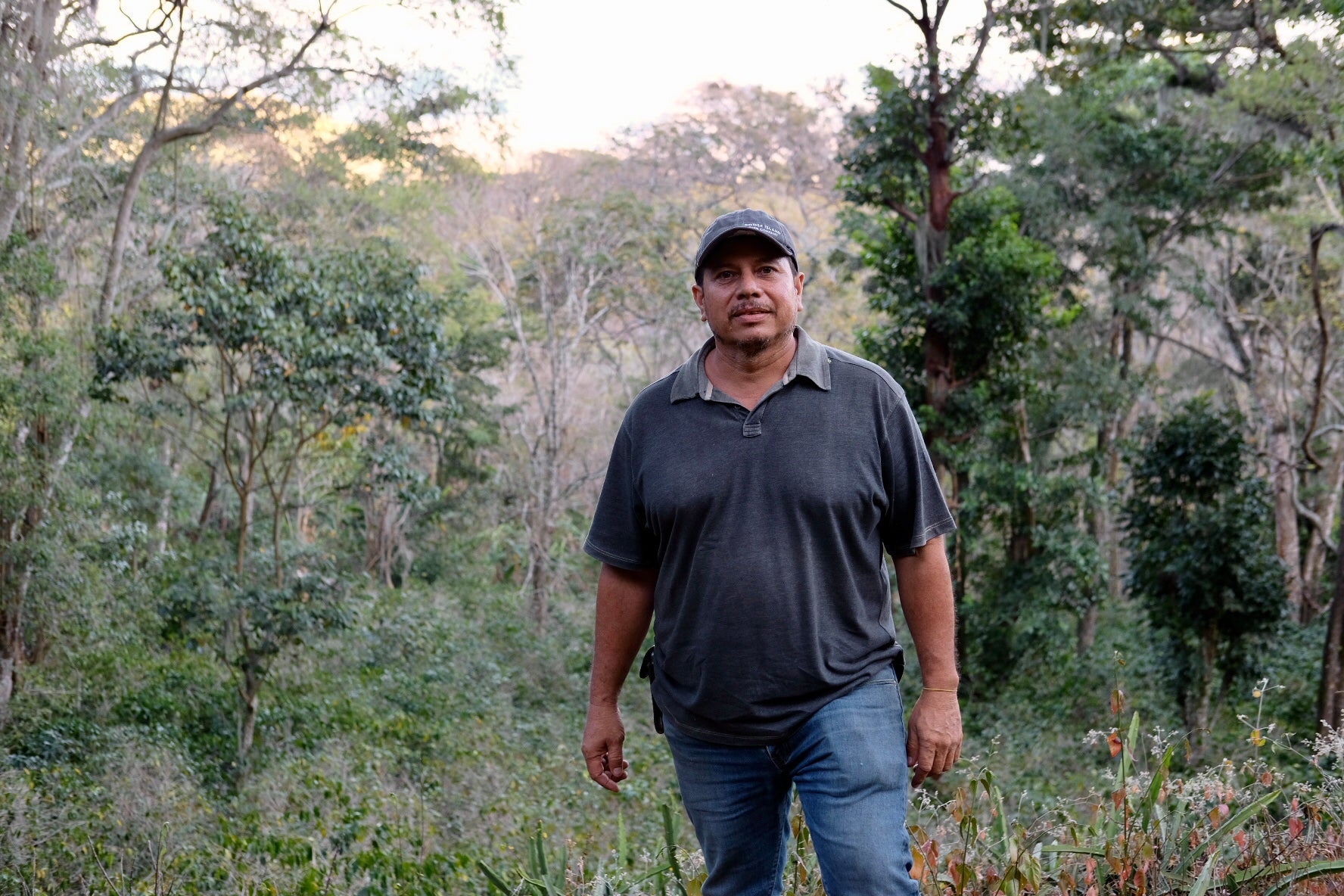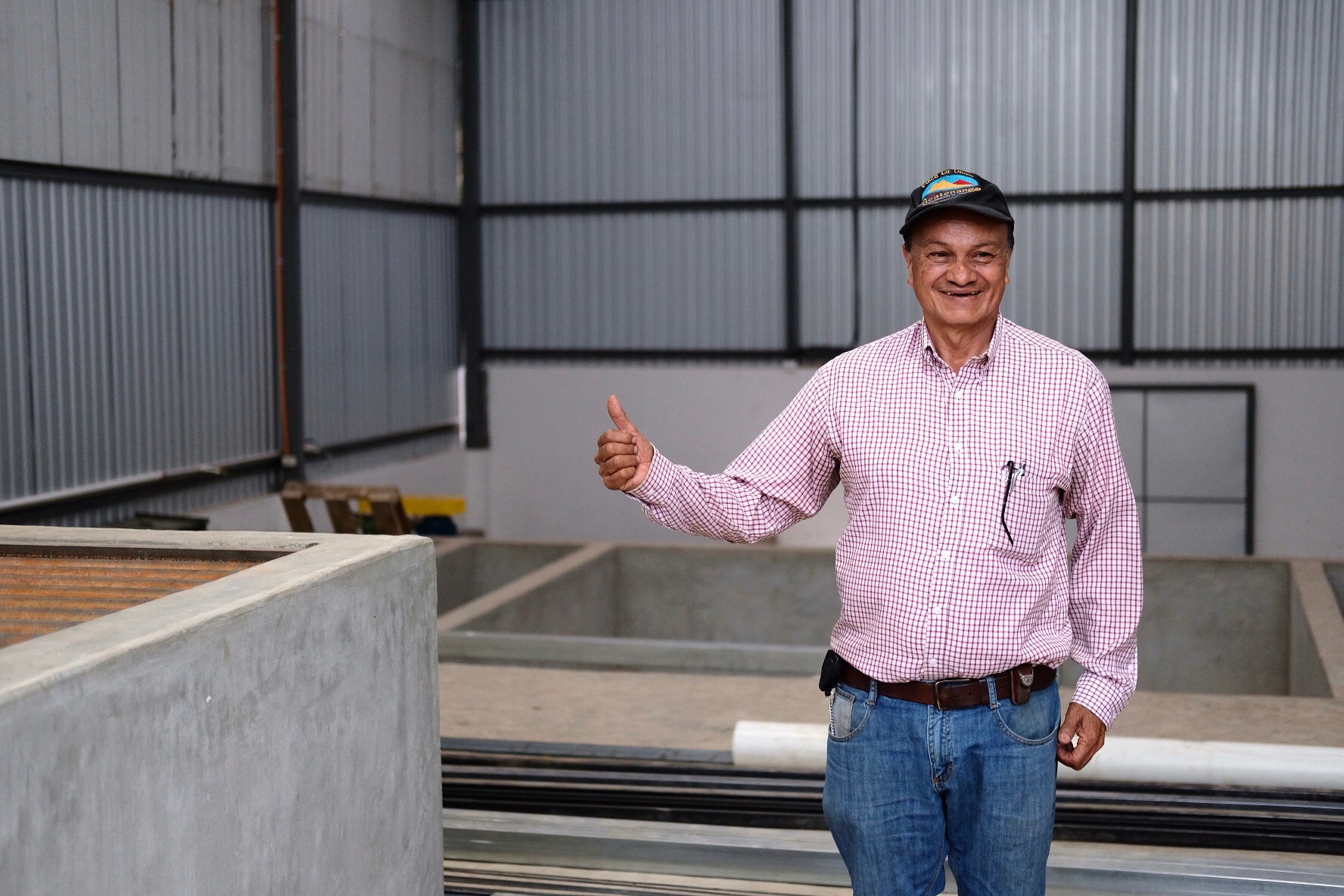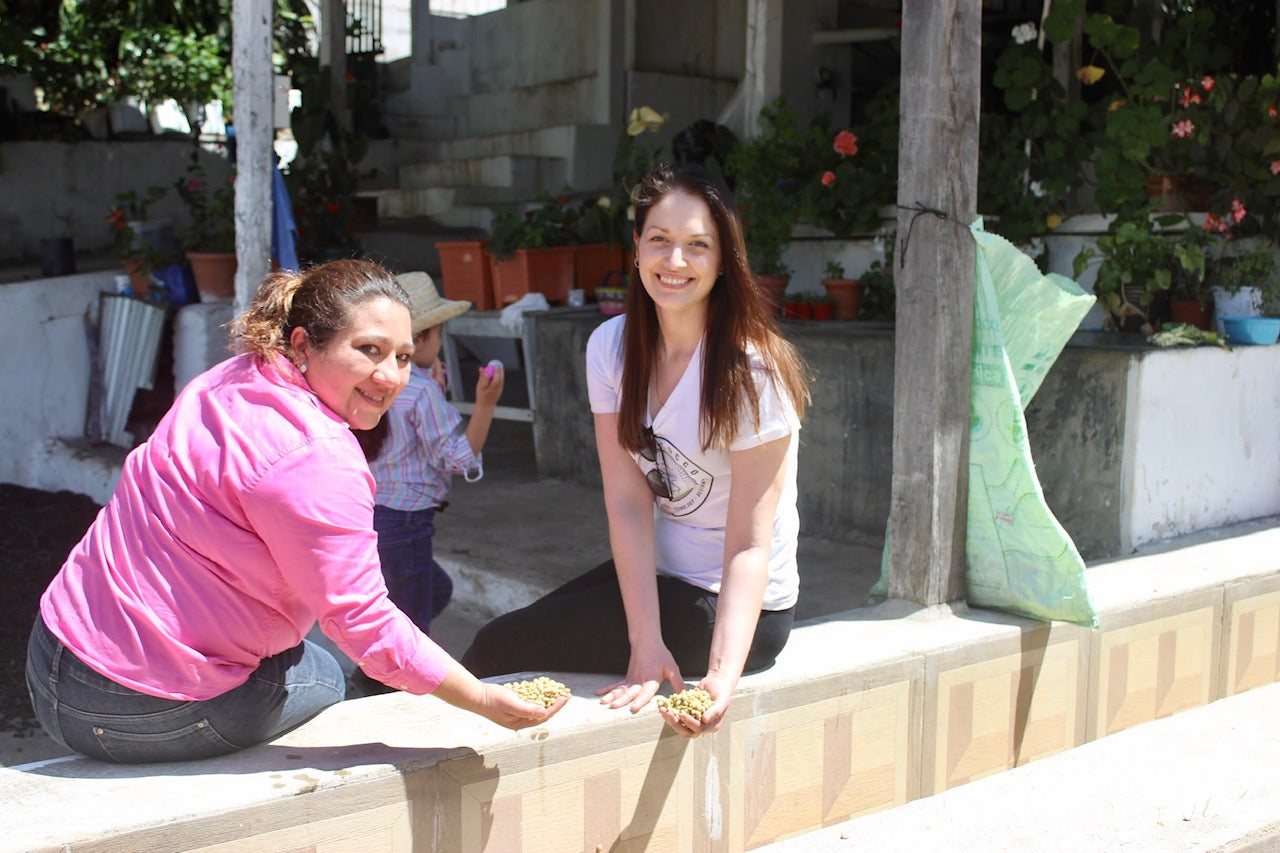
Journey to the Spring 2020: Huehuetenango, Guatemala
NOT
e have just returned from a trip to the remote, mountainous region of Huehuetenango in Guatemala. It was the very first time that Saint-Henri set foot there with the aim of visiting Patricia Perez.
Patricia lives with her mother Auri and her 7-year-old daughter Iza in their simple, but charming little house overlooking their drying patios. It was following the death of her father 14 years ago that she took over the farm, becoming the first woman to own a farm in the region. It was not without pitfalls that she succeeded in doing what many thought she would not be able to accomplish and today she operates the plantation successfully. With the help of Onyx Coffee, our exporter, she manages to sell more than 60% of her annual production at premium prices.
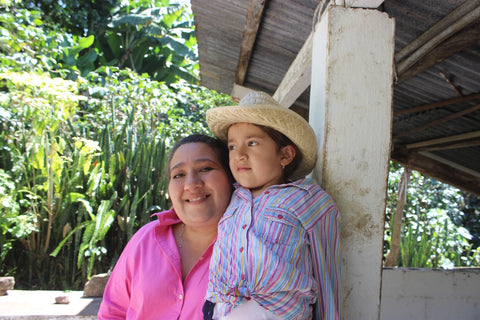
El Diamante is located on the mountainside. Caturra, Bourbon and Typica plants grow in the shade of several fruit trees: lemon trees, orange trees, banana trees and apricot trees. Patricia has also recently added small plots with Geisha and Maragogype. When I asked her what her biggest current challenge was, she told us about road maintenance. The inhabitants of this part of Huehuetenango must maintain the dirt roads themselves by establishing toll points between villages and a tax on coffee bags. Patricia therefore has to pay around US$3 per bag of parchment coffees in order to be able to transport them to Huehuetenango.
Patricia and her mother are very welcoming. When we arrived, freshly baked bread was waiting for us. She then began to tour his batches with us to show us in detail his washed double fermentation process. Afterwards, she invited us to dinner with a delicious typical Guatemalan dish, Pepian. We finished the meal tasting his own roast of his coffee as well as ours, thanks to the bag we had brought him.
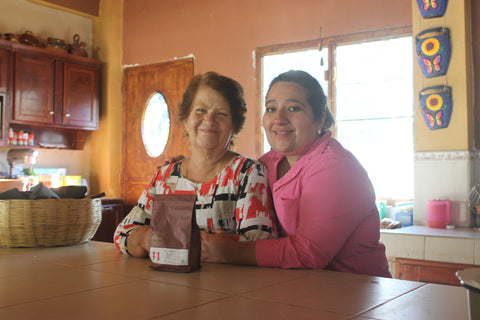

His own farm, a mixture of lots inherited from his father and new lots, is called Finca Villaure. He has 9 lots in total on his 44 hectare farm which surround the village. He grows mainly Bourbon, Caturra and Pacamara as well as a small plot of Maragogype and Geisha. It uses the washed treatment with the exception of some recent tests of natural and anaerobic which represents only one percent of its annual volume. His son Rodin is an agronomist and is in charge of these experiments. His second son, Jenner, ensures quality control and exports in their brand new lab in Huehuetenango. Together they form an excellent team since their farm stands out each year in the Cup of Excellence competitions.

The stay with Aurelio was punctuated by long hikes on the lots, several cuppings, delicious typical meals and long discussions. These exchanges are the most important; These are unique opportunities to share our knowledge in our respective fields and thus better understand our different realities and industries.

Back in Guatemala City, we were able to taste several more batches of El Diamante and we settled on a sweet and floral batch with notes of red fruits, chocolate and hazelnuts. Enough to salivate until its arrival during the summer!


